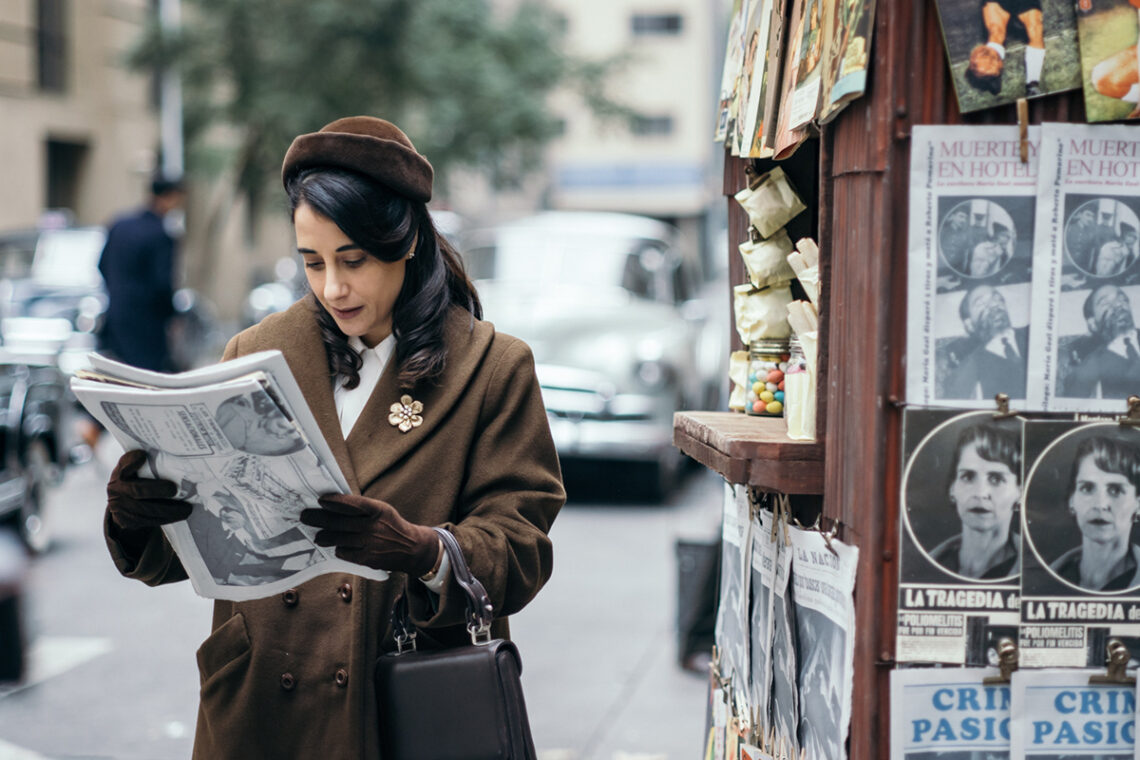Maite Alberdi’s leap into fiction: A new chapter in Chilean cinema
A celebrated documentarian’s bold move
For Chile’s most celebrated documentarian, Maite Alberdi, the transition from documentaries to fiction filmmaking has been both challenging and rewarding. Her debut fiction film, El lugar de la otra, is competing for the Golden Shell at the 72nd San Sebastian Film Festival (SSIF). Unlike her documentaries, which have taken an average of five years to complete, this drama was shot in just a month. Alberdi’s previous works, The Eternal Memory and The Mole Agent, have both garnered Oscar nominations, setting high expectations for her latest venture.
Recreating 1950s Santiago: A monumental task
One of the significant challenges Alberdi faced was recreating 1950s Santiago for her period film. The art department, led by Pamela Chamorro, had to work around the scarcity of buildings from that era. “Earthquakes and the lack of government policies to preserve our architectural heritage have left few buildings from past eras still standing in Santiago,” Alberdi explained. This made the task of authentically depicting the city a formidable one.
A new experience with a larger cast
Working with a cast of around 50 actors was a novel experience for Alberdi, who is accustomed to working with a small crew of three for her documentaries. “The challenge was to find the truth in their performances, the nuances in their gestures and actions,” she noted. This time, she had a crew of 80 people, a significant shift from her usual setup.
The cast includes Elisa Zulueta, Francisca Lewin, Marcial Tagle, Pablo Macaya, and Gabriel Urzúa. The film was lensed by Sergio Armstrong (Neruda), adding a layer of visual authenticity to the narrative.
Inspired by true events
El lugar de la otra is inspired by Alia Trabucco’s book Las Homicidas (Women who Kill), which chronicles the cases of four Chilean women who committed murder. The film, a Netflix Original produced by Chilean powerhouse Fabula (El Conde, Spencer), focuses on the case of novelist Maria Carolina Geel, who killed her lover in front of stunned diners at the Hotel Crillón in the early 1950s.
A story of self-discovery and societal reflection
The screenplay, written by Inés Bortagaray and Paloma Salas, centers on Mercedes (played by Zulueta), the secretary of the judge assigned to Geel’s case. When Mercedes visits the writer’s elegant apartment as part of the investigation, she finds an oasis of calm that contrasts sharply with her cramped home life. This discovery leads her to question her life, identity, and the role of women in society.
“Mercedes is a fictitious character but represents all of us women. Like us, she seeks to find her own space in order to evolve and create,” Alberdi mused. The film also delves into the classism and patriarchy that continue to prevail in Chilean society.
A documentary approach to fiction
When asked why she chose this particular story for her fiction debut, Alberdi replied, “I see it as a kind of documentary of that era.” Her approach to storytelling remains rooted in her documentary background, focusing on authenticity and real-life inspiration.
“I just want to make films, it doesn’t really matter what genre,” she continued, adding that she has two documentary projects in early development.
A fruitful collaboration with Netflix and Fabula
“Netflix and Fabula made such great partners for my first fiction film. They respected my points of view, my vision, and deftly guided me through this new world,” Alberdi remarked. This collaboration has allowed her to bring her unique perspective to a broader audience.
San Sebastian: A city of cinephiles
Reflecting on her experience with the San Sebastian Film Festival, Alberdi said, “I was a juror at San Sebastian a few years ago. What I love most about it is its audience. The cinemas are packed; it’s truly a city of cinephiles.”
The 72nd San Sebastian Festival runs from September 20 to 28, and El lugar de la otra is poised to make a significant impact.
For more information and to watch the trailer, visit El lugar de la otra.
This article aims to provide a comprehensive look at Maite Alberdi’s transition from documentaries to fiction filmmaking, highlighting the challenges and triumphs she faced along the way. For cinema and TV series enthusiasts, this is a story of artistic evolution and the relentless pursuit of storytelling in its many forms.

 Italian
Italian







